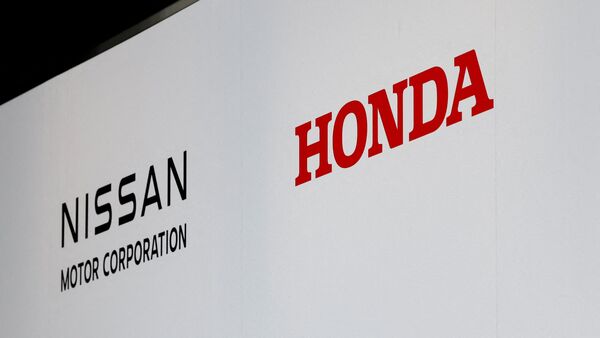Since August 2024, Nissan and Honda have been investing in research for next-generation automotive software. The new strategy extends beyond the infotainment systems, aiming for an all-encompassing digital platform that will form the foundation for next-generation models of both brands.

View Personalised Offers on
Earlier this year, merger discussions between Japanese auto giants Nissan and Honda collapsed, halting what could have been one of the most significant consolidations in the global auto industry. While that ambitious plan has now been shelved, both companies are opting for a more focused, less dramatic collaboration, a report by Nikkei Asia The new strategy focuses on co-developing software platforms for next-generation vehicles — a strategic shift designed to position itself as relevant in an age rapidly driven by software-defined vehicles and connected mobility.
This union, if not quite an alliance, indicates an increased sense of urgency to rethink the manufacturing of and experience with vehicles. Evidence of this collaboration first may be seen in production cars later in this decade as it begins a transition away from mechanical hardware and toward software ecosystems as the new turf of competitiveness.
Building a shared software core
Since August 2024, Nissan and Honda have been investing in research for next-generation automotive software. The new strategy extends beyond the infotainment systems, aiming for an all-encompassing digital platform that will form the foundation for next-generation models of both brands. At the heart of this initiative is the ambition to standardize elements like electric motors and semiconductors — technologies that will form the heart of their common architecture.
Also Read : 2026 Nissan Patrol Nismo unveiled as the most powerful version ever. Check details
One of the primary benefits of this internal strategy is ownership of data. Instead of depending on external suppliers of digital systems, Honda and Nissan desire to own the user data created through vehicle systems — an asset that’s ever-more valuable in the future automotive economy. This would facilitate more nimble development, enhance product feedback loops, and enable future monetization via software-based services.
But the project does not come cheap. Development of this shared software architecture could cost more than $10 billion, estimates say. The long-term payoff, however, might be in the form of repeat business, as brands move toward charging for software updates and upgrades — a model some EV makers already follow.
Responding to China’s digital push
This shift toward a common digital future is also underscored by a more immediate threat: the increasing prominence of Chinese EV brands in vehicle software and connectivity. Among some of the cheapest Chinese electric models are now digital systems that are competitive — and in some instances, superior — to those in premium offerings by traditional automakers.
For Nissan and Honda, it is not about software but survival. The emergence of software-led automotive design has taken many established players by surprise, and both Japanese manufacturers have accepted that they must speed up their digital revolution. Consumer demands are changing fast, and convenient user experiences and connected services have become the minimum requirements instead of niceties.
Also Read : Honda City Hybrid gets a price cut, more affordable by ₹1 lakh
A collaborative step toward catching up
In the short-term, Nissan and Honda will continue working on their respective software platforms for future models. Eventually, however, it looks like the goal is to introduce a shared core system, topped with brand-specific interfaces. This would be similar to the tactics adopted in the smartphone sector, where ordinary operating systems still provide bespoke user experiences.
Rather than competing on past strengths, both brands agree that there will need to be a focus on building smarter cars from scratch. Whether this software partnership provides the margin of innovation required to keep pace with fast-moving competitors — especially from China — remains to be seen, but it is a needed directional correction in an era where digital leadership more than ever determines brand significance.
Get insights into Upcoming Cars In India, Electric Vehicles, Upcoming Bikes in India and cutting-edge technology transforming the automotive landscape.
First Published Date: 20 Jul 2025, 11:00 am IST







